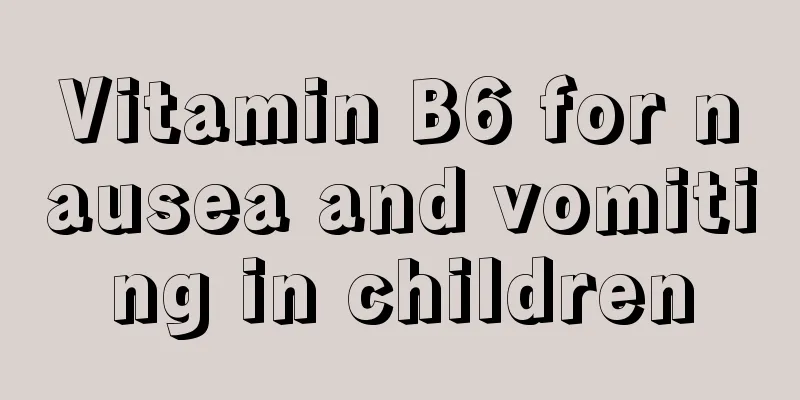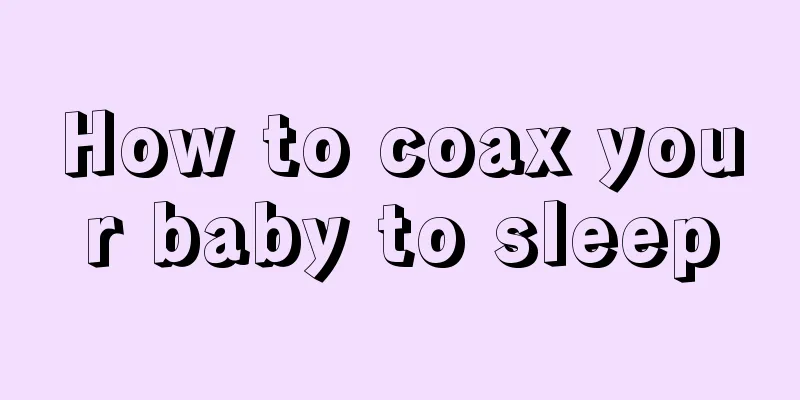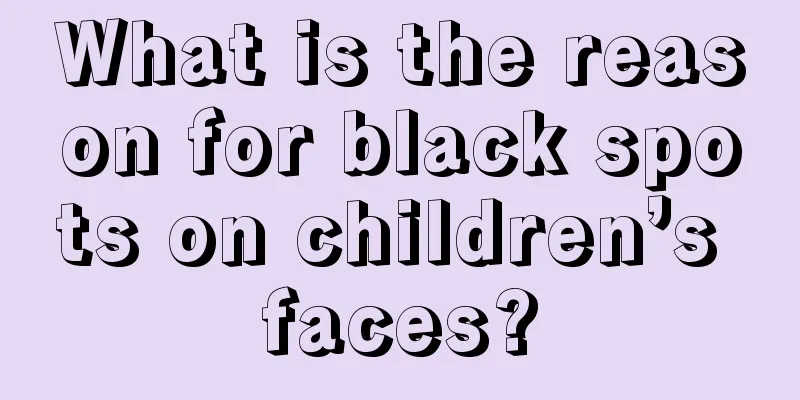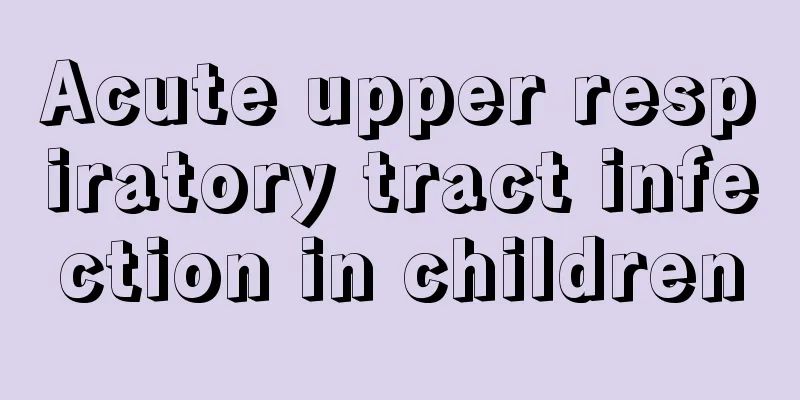Sequelae of general anesthesia for children
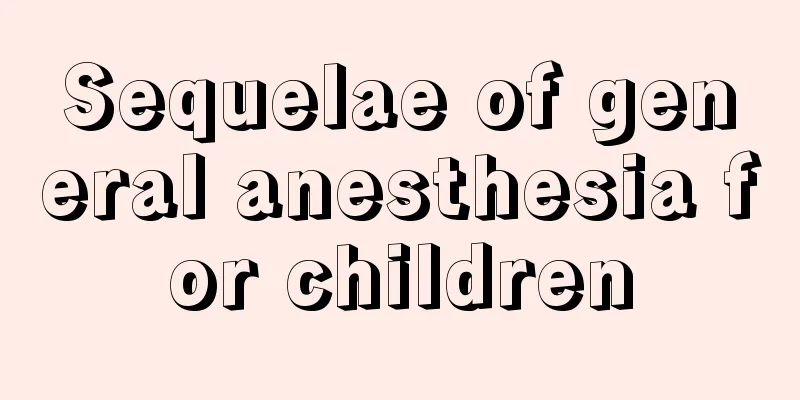
|
Because children are young and have low immunity, and they cannot protect themselves, it is inevitable for them to get infected with diseases. If it is a minor illness like a cold, just rest, drink plenty of water, and take some cold medicine, and you will be fine. If the illness is more serious, you can also receive intravenous treatment. However, if you suffer from diseases such as appendicitis and intestinal obstruction that require surgical treatment, you will need to undergo surgery under general anesthesia. So will general anesthesia for children leave any sequelae? Because the child is relatively young, it is generally recommended to perform the operation under general anesthesia for the safety of the operation. Currently, general anesthetics have little effect on the human body and will not affect children's intelligence and brain development, so don't worry about this. However, as a surgery, some complications may occur, but there is no guarantee that they will not occur. General anesthesia refers to a process in which the cerebral cortex is suppressed after inhalation or intravenous injection of anesthetics, causing the child to temporarily lose consciousness, thus ensuring the completion of various operations in a painless manner. This type of anesthesia allows the patient to completely lose consciousness and feel completely free during surgery, allowing him to fall asleep peacefully and without any pain. For young children, since they are unable to consciously cooperate with the operation, general anesthesia has almost become the first choice for pediatric surgical anesthesia. However, many parents still have doubts, "Will general anesthesia affect the child's intellectual development?"; "Will the child become stupid or dumb after taking anesthetics, affecting his learning and development?" Some parents even refuse general anesthesia for this reason. This is due to people's lack of understanding of general anesthesia. We know that stupidity and intelligence are both related to brain activity. Brain cells, as the basic material units of thinking, must have sufficient nutrients such as oxygen and sugar for their activities. Oxygen is the main decisive factor. If there are respiratory and circulatory disorders, brain cells will be deprived of oxygen. If the brain cells stop receiving oxygen for 5 to 8 minutes, it will seriously affect the metabolism of brain cells, affect brain function, and even cause irreversible consequences. Therefore, theoretically, if there is no ischemia and hypoxia, it will not affect the child's intelligence. We are looking at general anesthesia. Pediatric general anesthesia can be divided into two types according to the route of administration: intravenous and inhalation. That is, anesthetics are injected intravenously or inhaled into the lungs, reaching the nerve center - the brain through the blood circulation, and by blocking the bioelectric transmission between nerve synapses, the purpose of suppressing the child's consciousness and blocking the transmission of pain is achieved. But this blockade is controllable and reversible. Controllability means that during the operation, the anesthesiologist can precisely control the anesthetics to meet the requirements of the operation and ensure the stability of the child's life. The latest computer target control technology has made the use of drugs accurate to milligram units; reversibility means that the anesthetics used in modern clinical practice have undergone strict drug screening, animal and human trials, and their effects on the child's neurological activity are transient. With the end of the operation, under the control of the anesthesiologist, the anesthetics will be excreted from the body, of which 99.9% of inhaled anesthetics are excreted in their original form through the lungs, and intravenous anesthetics are also converted into harmless substances in the body and excreted in the urine, and neurological function is restored accordingly, without any "effects" left. On the contrary, if pediatric surgery is performed without anesthesia, it will increase the risk of the surgery and may even cause the child to become stupid. This is by no means an exaggeration. Pediatric surgery requires the collaboration of a team. Not only are pediatric surgeons needed, but also nurses and anesthesiologists in the operating room and postoperative care unit. The anesthesiologist not only provides anesthesia, but also escorts the operation. During the operation, the anesthesiologist, on the one hand, uses his rich clinical experience and advanced monitoring equipment to understand the patient's basic vital signs such as blood pressure, heart rate, blood oxygen content, etc. On the other hand, he comprehensively regulates the patient's physiological indicators through infusion, medication, and oxygen inhalation to ensure the supply of oxygen throughout the operation. Without the work of anesthesiologists, surgical safety would be out of the question. Continuous monitoring after surgery is also to prevent various unexpected situations and ensure oxygen supply to the brain. Of course, as a drug, anesthetics also have certain side effects. Some children become unresponsive during the postoperative recovery period because children have a low metabolic rate and poor excretion function. In addition, anesthetics stored in fat, muscle and other tissues during surgery are "secondarily distributed" into the blood after surgery, and a certain amount of anesthetics still remains in the children's blood, which manifests as apathy and unresponsiveness during the postoperative recovery period. This phenomenon is a normal metabolic process of anesthetic drugs and parents do not need to worry too much. Some children may experience varying degrees of insomnia and short-term memory impairment within a week after anesthesia, but this does not mean that the child's intelligence is affected. On the other hand, pediatric surgery cannot be performed without general anesthesia. First of all, children’s intellectual development is not sufficient to understand the disease and cooperate with surgery. Just imagine a child leaving his parents' arms, entering an unfamiliar operating room, and enduring severe pain. What a huge psychological trauma this would be. Some scholars have studied that such children will have long-term behavioral development disorders and obvious endocrine disorders after surgery. Even when they grow up, this unpleasant experience will exist in their subconscious and cause psychological barriers. Secondly, without general anesthesia, the child cannot cooperate during the operation, which will result in constant movement, which will have a huge impact on the precision of the operation. Finally, good anesthesia can also provide a good operating environment for surgeons. Otherwise, the surgeon has to comfort or even hold down the patient while performing the operation, and it is difficult to ensure the smooth completion of the operation amid the crying of the child. To sum up, general anesthesia is very necessary for pediatric surgery. As long as the anesthesiologist understands the characteristics of pediatric anesthesia, uses medications accurately, observes carefully, and handles the situation correctly, the safety of the operation can be guaranteed, and the adverse effects rumored in society will not occur after the operation. |
<<: 7-year-old girl's underwear is a little yellow
>>: The child has an abscess on his gums
Recommend
How teenagers can protect their teeth
The importance of teeth is self-evident. To ensur...
What to do if your baby's toenails are uneven
The baby's body's defense system is not y...
What is the cause of the white spot on the baby's face?
We all know that the baby's skin is particula...
How to clean your baby's mouth
Some parents often have this misunderstanding, th...
What to do if baby's toes peel
After ten months of pregnancy, the expectant pare...
What should I do if my baby has a fever or a cold?
We all know that the baby's immunity is relat...
What are the reasons why children don’t like to eat?
Nowadays, parents treat their children as preciou...
What should I do if my child has a fever and wants to vomit but can't?
Because children have lower resistance, they are ...
What is the diet for babies aged seven to eight months?
Most of today's new mothers are well-educated...
Why does the baby's bottom turn red?
The baby's skin is always so tender that peop...
What should I do if my child has diarrhea and vomiting?
Because children's body systems are not fully...
What should parents do if their children often sweat profusely?
I wonder if you parents and friends have noticed ...
Treatment of astigmatism and amblyopia in children
We know that children are more vulnerable to cert...
What to do if your 11-month-old baby doesn't like to eat
Babies being picky about food and not wanting to ...
There are white spots in the child's throat
Children's resistance is relatively low, whic...


